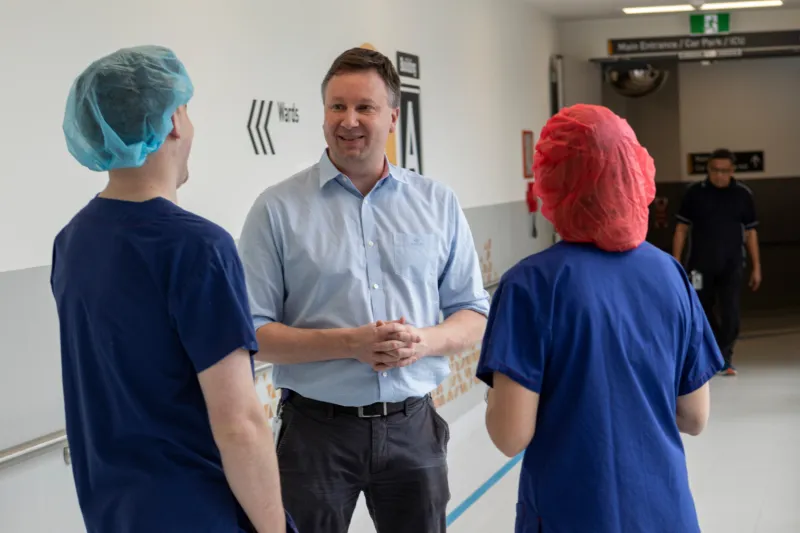Peninsula Health Unveils Automated Cancer Detection System Post-Endoscopy

Innovative Tool Reduces Cancer Treatment Delays
Australia’s Peninsula Health has introduced a groundbreaking system called the “Post-Endoscopy Pathway” to streamline the detection and treatment of unexpected cancers. This innovative tool significantly reduces the time it takes for patients to receive specialist care, cutting wait times by 43% since its implementation.
The system is designed to automate the process of identifying potential cancer cases. It works by matching a patient’s histopathology results with their endoscopy report. Once matched, the system scans these documents for specific keywords that may indicate the presence of a malignancy. This automated approach ensures that no critical findings are overlooked, even in high-volume settings where manual checks might lead to errors or omissions.
“Manual checking of the results is standard practice, and when you are performing thousands of procedures each year, inevitably it raises the possibility that some will get missed,” said Marcus Robertson, Head of Gastroenterology at Peninsula Health. The new system aims to eliminate this risk by introducing a more reliable and efficient method of reviewing test results.
One of the key features of the Post-Endoscopy Pathway is its ability to generate an email alert to gastroenterology staff if a possible malignancy is detected. This immediate notification allows medical professionals to act quickly, ensuring that patients who need urgent care receive it without unnecessary delays.
In addition to this automated alert system, the gastroenterology team at Peninsula Health is collaborating with surgical colleagues to further refine the pathway. The goal is to ensure that once a malignancy is identified, the patient can be promptly scheduled for a specialist clinic appointment. This seamless coordination between departments helps to create a more efficient and patient-centered care process.
The benefits of this initiative extend beyond just faster treatment times. By reducing the likelihood of missed diagnoses, the system also improves overall patient outcomes. Patients who receive timely care have better chances of successful treatment and recovery, which is especially important in cases involving unexpected cancers.
This development highlights the growing role of technology in modern healthcare. As medical institutions continue to adopt digital solutions, they are able to enhance diagnostic accuracy, improve workflow efficiency, and ultimately provide better care to their patients. Peninsula Health’s Post-Endoscopy Pathway serves as a prime example of how innovation can drive meaningful improvements in clinical practice.
The success of this system has already been demonstrated through its impact on patient care. With a 43% reduction in wait times for specialist treatment, it is clear that the tool is making a significant difference. As the healthcare industry continues to evolve, such advancements will play a crucial role in shaping the future of cancer diagnosis and treatment.
Furthermore, the collaboration between different medical specialties within Peninsula Health showcases the importance of interdisciplinary teamwork in improving patient outcomes. By working together, gastroenterologists, surgeons, and other healthcare professionals can create a more integrated and responsive system that meets the needs of patients.
Overall, the Post-Endoscopy Pathway represents a major step forward in the fight against unexpected cancers. Its combination of automation, real-time alerts, and streamlined processes sets a new standard for efficiency and accuracy in medical diagnostics. As more institutions adopt similar technologies, the potential for improved patient care and outcomes becomes increasingly evident.

Comments
Post a Comment